Jewish History: Israel
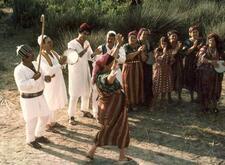
Community Dance Practices in the Yishuv and Israel: 1900-2000

Dance in the Yishuv and Israel
Artists began to try to create a new Hebrew dance in the 1920s. Israeli Expressionist Dance flourished first, followed by American modern dance. Israeli dance became professionalized and centralized, and over the past few decades, efforts to promote local creativity accelerated, ethnic dance companies have flourished, and choreographers have taken increasingly political stances.
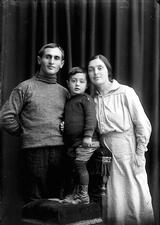
Devorah Dayan
Devorah Dayan was a symbol of the new Hebrew woman in pre-state Israel: she was maternal, rooted in the land, and fulfilled the values of a pioneer society. Her long writing career mostly comprised of autobiographical essays in publications for the women workers’ movement.
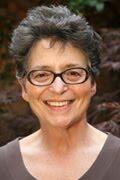
Barbara Dobkin
Barbara Berman Dobkin is the pre-eminent Jewish feminist philanthropist of the end of the twentieth and beginning of the twenty-first century. Her vision, dedication, and philanthropic generosity have transformed the landscape of Jewish women’s organizations and funding in both North America and Israel.
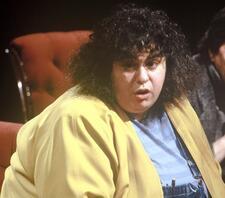
Andrea Dworkin
S. Deborah Ebin
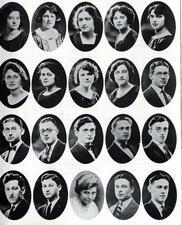
Elsie Chomsky
Elsie Chomsky, one of the many young Jewish educators influenced by reformer Samson Benderly, taught Modern Hebrew and organized arts activities for many years at Gratz College in Philadelphia. She trained and supervised student teachers who taught in local Reform and Conservative Hebrew schools.
Claire Epstein
Claire Epstein is an outstanding example of a spirited woman archaeologist who worked untiringly and out of true love in search of the past in the Land of Israel. She received two important awards for her work: the Israel Museum’s Percia Shimmel Award in Archaeology and the Israel Prize for archaeology.
Equality, Religion and Gender in Israel
Although the principles of equality for women under the Declaration of Independence and the Women’s Equal Rights Law were not endowed with constitutional force, and the 1992 Basic Law: Human Dignity and Liberty does not expressly include the principle of equality, these laws have been interpreted by the courts as securing the principle of gender equality as a basic principle of the legal system.

Ethiopian Jewish Women
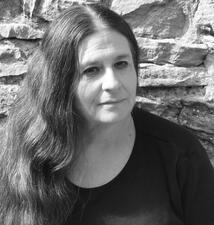
Merle Feld
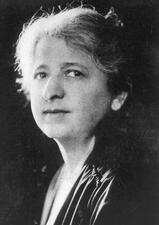
Mary Fels
Mary Fels used her wealth and her talents to further the Zionist cause, arguing passionately for a Jewish state and helping create both settlements and industry in Israel. Both Fels and her husband, a successful soap manufacturer, felt their wealth gave them a responsibility to reform capitalism and use their money for philanthropy.
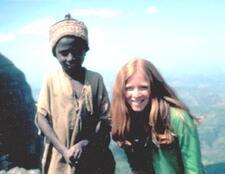
Barbara Gaffin

Sally Gottesman
Sally Gottesman, born 1962 in New Jersey and residing in New York, is a non-profit entrepreneur whose leadership and philanthropy have had a major impact on the Jewish feminist and justice landscape.
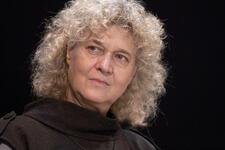
Michal Govrin
Michal Govrin, born in 1950 is an Israeli poet, writer, and stage director. She takes a highly individualized perspective on Israeli-Jewish post-Holocaust reality by combining artistic experimentation with Biblical and Rabbinic sources and philosophical discourse. In her poetry, prose and essays she examines places and spaces within a polyphonic context of architecture, art and theater, the sanctity of land, and the national narrative.
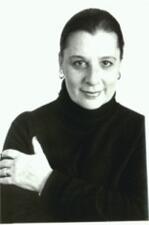
Blu Greenberg
Blu Greenberg is known as the mother of Orthodox feminism and is author of On Women and Judaism: A view from Tradition. She coined the phrase “Where there’s a rabbinic will, there’s a halakhic way,” demanding that rabbis find systemic solutions to help women who feel trapped by aspects of halakhah. Greenberg is a fierce advocate for agunot, women trapped in unwanted marriages.
Aliza Greenblatt
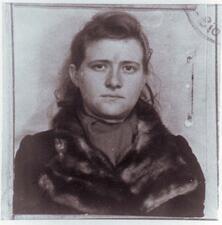
Haika Grosman
Politically active from a young age, Haika Grosman played a key role in the underground resistance to Nazi occupation and the Holocaust and put her safety on the line in the name of the movement.
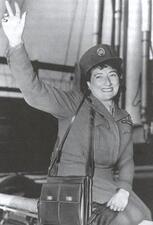
Ruth Gruber
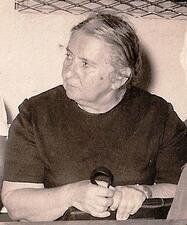
Rivka Guber
Through her work as a soldier, writer, teacher, and volunteer supporting immigrants, Rivka Guber exhibited selflessness for her neighbors and for the young State of Israel as a whole, earning her the title “Mother of the Sons” and the respect of the nation.
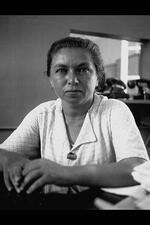
Bracha Habas
Bracha Habas was an educator and one of the first professional women journalists in Erez Israel. She was a member of Davar’s editorial board and the co-founder of its children’s newspaper, Davar le-Yeladim. Enumerating on Habas’s 48 publications, Rahel Adir described her as “the recorder of Yishuv history.”
Hadassah (Spira Epstein)
Hadassah Spira Epstein was a major dance artist of the twentieth century, a performer of Jewish, Hindu, and other ethnic dance forms, and a leading force in presenting the dance of other cultures to the American public. She was a pioneer in bringing Jewish dance to the United States and was recognized as such in the first U.S. Congress on Jewish Dance held in New York City in 1949.
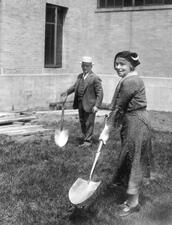
Hadassah in the United States
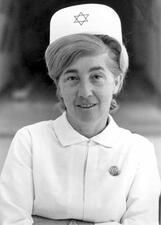
Hadassah School of Nursing: First Graduating Class
Nursing was not recognized as a profession in Israel until 1918, when the American Zionist Medical Unit, which later became the Hadassah Medical Organization, opened a nursing school. The first graduates were the leaders and pioneers of the nursing profession in Israel.



